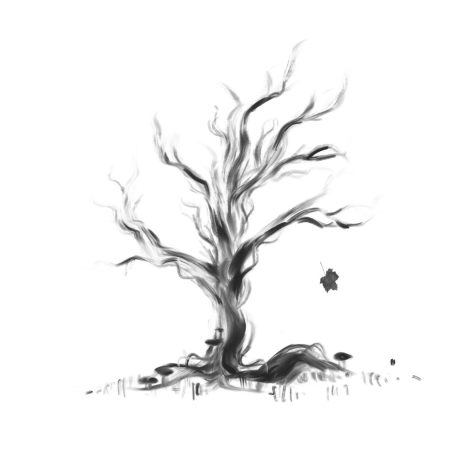Gearing up for a S.A.D. winter
November 10, 2022

“Into each life some rain must fall,
Some days must be dark and dreary.”
-Henry Wadsworth Longfellow
The past few weeks, Walla Walla has offered its not-so-warm welcome to Whitman students. As the rain persists and the trees abandon their last remaining leaves, the promise of winter both excites and distresses students. For students experiencing seasonal affective disorder, the cold weather welcomes gray skies, as well as gloomy minds — and daylight savings hasn’t helped matters.
Known colloquially as seasonal depression, seasonal affective disorder is a change in mood that correlates with the changing of the seasons. We most commonly see this change as a dip in mood and energy as we transition into fall and winter. Millions of Americans experience seasonal depression, most notably in more northern regions with extreme seasonal daylight changes, such as Alaska.
Despite hailing from the Pacific Northwest, senior Sofia Solares had never experienced seasonal depression before coming to Whitman. As a college student, early darkness began to affect her. Solares cited several possible reasons for this shift.
“Maybe it was just being away from home for the first time,” Solares said. “I was also living in Santa Cruz, California, for six months before moving back to Portland. There were a lot of things that coincided … now I know that when the sun starts to go down earlier, it’s easier for me to get sad.”
Seasonal depression’s temporal nature can make it easy to dismiss as a serious mental health issue. However, as we approach mental health as a fluid and ongoing conversation, we can understand seasonal depression as more than just a set of mood swings during an adjustment period. While writing, I admittedly found myself trying to define what seasonal depression really was, but pinpointing a single definition isn’t important. Like any other mental illness, the definition and impact of seasonal depression varies widely from person to person.
Seasonal depression has no single cause, but scientists hypothesize that the lack of vitamin D and increased melatonin interfere with our brain’s normal functions. Less sunlight means that serotonin is more difficult to produce, and our bodies are quicker to produce melatonin. Since daylight savings shaved off an hour of sunlight this past weekend, many of us are seeing less and less sunlight day-to-day; we spend our mornings and afternoons inside campus buildings and get out of class to find the sun getting ready to set. Scientifically, we’re bound to get a little drowsy and subdued.
Solares took the scientific approach, addressing her mental health through proper supplementation and self-care.
“One of the first things that came up [when researching] was vitamin D supplements,” Solares said. “I also invested in this thing called a Happy Light. I’m not sure if it emits a certain frequency, or vitamin D, but I turn it on when I’m studying—and it honestly might be placebo, but it has to be doing something.”
While neurochemistry can help explain some seasonal changes in mental health, it can’t always explain the ways these changes manifest in our brains. Sayora Idibekova, a first-year international student from Tajikistan, shared the changes she observed as the rainy days became more frequent.
“I realized I have some sort of seasonal depression once it started raining — specifically, it really reminded me of being at home because the weather there is similar,” Idibekova said. “It made me kind of nostalgic and homesick.”
Neurochemicals can provide biological reasoning for difficult emotions, but this provides little comfort when you’re in your own mind, undergoing the thoughts and emotions influenced by seasonal depression. Idibekova described a melancholic nostalgia. Solares, on the other hand, found humor in her typical seasonal depression-influenced thoughts.
“I’ve joked with my friends that in the colder months I’ve cut and dyed my hair, and it’s one of those things like, ‘oh she’s going through it,’” Solares said. “I’ve consistently, for four years now, had the urge to cut or do something to my hair every year around wintertime, so it’s a seasonal depression haircut.”
This isn’t to suggest that the only effects of seasonal depression are slightly impulsive haircuts and some homesickness. Like any other mental illness, seasonal depression can have severe consequences. Still, it can easily be misinterpreted as laziness. However, rather than working against the seasons, there are perhaps ways to work within them when struggling with seasonal depression.
“We all have to be on the grind no matter the season. [We should] just [be] understanding that the environment can affect the way that you feel and maybe accommodate that in appropriate ways,” Solares said when asked how to best support friends and peers with seasonal depression. “It’s just as legitimate as physical health.”
Idibekova emphasized finding the silver lining amidst the gloomy seasons.
“I think we should do the activities we can only do in that specific season, like skiing in winter or swimming in the summer, because you’ll miss them,” Idibekova said.
Nature is a powerful mental health prescription. However, as much as we can get outside, get active or take vitamin D supplements, professional help is always encouraged. For Whitman students experiencing mental health struggles, the campus Counseling Center is available at 509-527-5195, and the National Alliance on Mental Illness hotline is available at 1-800-950-6264.





